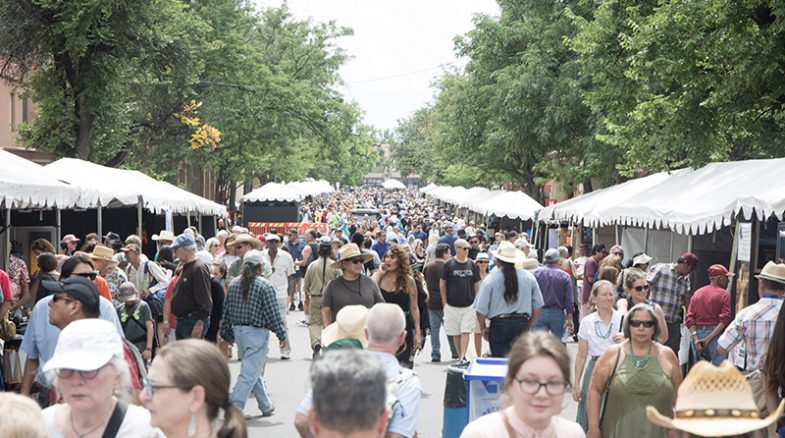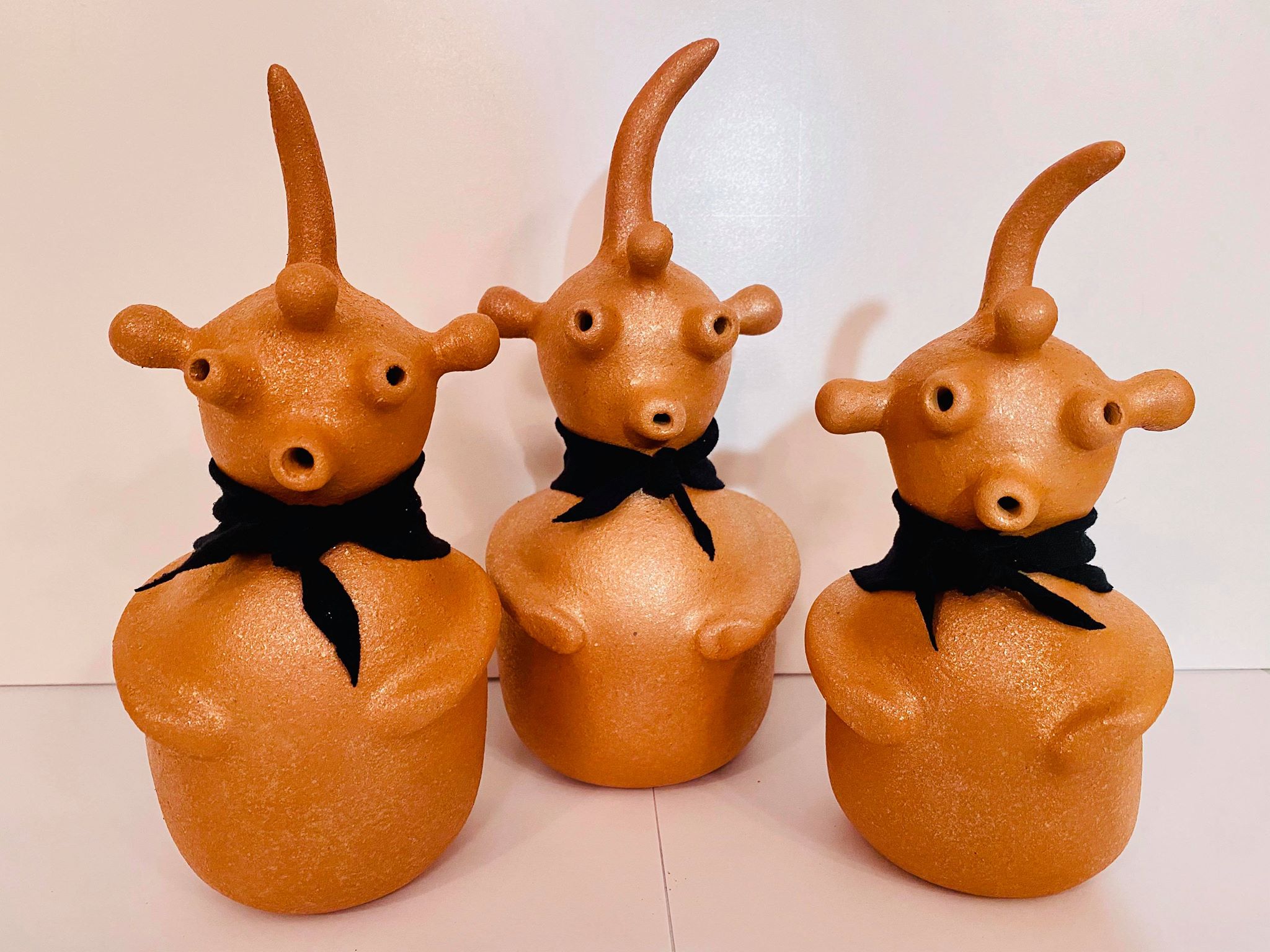
In a huge blow to Native artists, Santa Fe Indian Market postponed a year due to COVID pandemic

Santa Fe Indian Market – Photo courtesy of SWAIA
“Virtual market” being considered
Published April 4, 2020
SANTA FE, N.M. — Another major American Indian event has been postponed due to public health concerns relating to COVID-19 (novel coronavirus). On Saturday, the Southwestern Association for Indian Arts (SWAIA), organizers of the annual Indian Market postponed this year’s event until August 2021.
The 99th Santa Fe Indian Market had been planned for August 15 – 16, 2020. With the postponement, the Centennial Celebration, slated for 2021, will be moved back until 2022.
According to SWAIA’s announcement on its website, the decision to postpone this year’s event was made by the organization’s board of directors last week.
“This is a difficult decision because Indian Market is a big part of my livelihood, but it is more important to protect the well-being of fellow artists, their families, our customers, and all of our communities. We pray for your health and safety and look forward to seeing you when Indian Market goes live again in 2021,” said board member and Native artisan Dominique Toya.
The Santa Fe Indian Market is promoted as the largest and most prestigious juried Native arts show in the world and the largest cultural event in the southwest. The event brings in more than 150,000 visitors into Santa Fe from around the globe.
The Indian Market allows for a great opportunity for buyers to meet some of the most talented artisans from Indian Country. These artisans are quick to tell the story behind creations that are inspired from their own personal experiences, family influences and rich American Indian heritage.

Mud Heads clay pottery by Lee Moquino – Courtesy photo
For some American Indian artists, the postponement represents a large loss of their annual income. For Lee Moquino (Tewa/Apache), a micaceous clay potter, who participates in the Indian Market every year, 30 to 40 percent of his annual income is made at the Indian Market.
“It’s understandable. Everyone’s safety, health and well-being is most important. It’s devastating and a financial blow to me as an artist, my family relies on money made at Indian Market and all art shows to survive,” Moquino said to Native News Online on Saturday evening.
The postponement of the Indian Art Market is also another blow to artists like Moquino, who generates significant sales come from art galleries and art shows throughout the United States that are now shuttered because of the COVID-19 pandemic.
“I pray that collectors will continue to support me by purchasing my work online.”

Choctaw/Cherorkee artist Lauren J. Reed
Lauren J. Reed, a Choctaw/Cherokee artist from Norman, Oklahoma, who creates paintings, drawings and hand-painted clothing, also says she hopes people buy Native art online during this difficult time.
“Many of us artists depend on Indian Market to get us through a majority of our year financially. Some people support their whole family through it. Although I agree with the postponement, I encourage collectors to take to buying online this year. We are still creating,” Reed said.
Artisans Refunds
SWAIA says all artists who juried into the 2020 Market are considered automatically accepted into the 2021 Market. Artisans who have already paid booth fees to reserve their spot for 2020 have a choice: 1) Full refund (SWAIA staff will contact artisans to find the best way to process their refunds); or 2) the fees paid can be applied towards a 2021 booth.
Virtual Market Being Considered
The SWAIA announcement says a Board Committee was formed and will explore the feasibility of conducting a “virtual market” for 2020. A virtual market would promote online sales for artisans because of the potential to reach a wide audience. SWAIA is accepting comments and ideas for a virtual platform through emails to SWAIA board member Mark Bahti; mbahti@swaia.org.
The post In a huge blow to Native artists, Santa Fe Indian Market postponed a year due to COVID pandemic appeared first on Native News Online.
